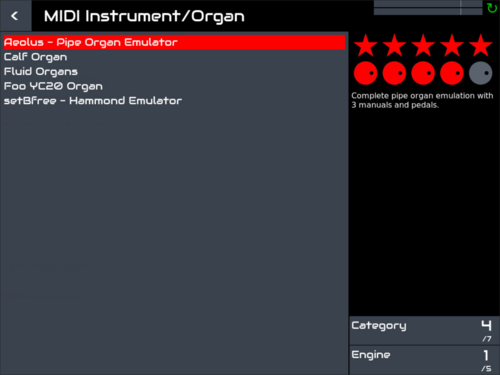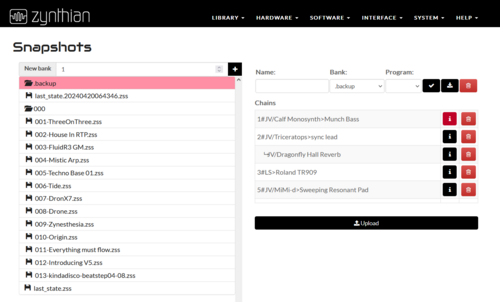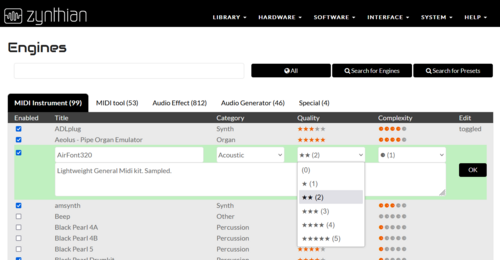Notes on Oram: some differences and new features
1 Introduction
This is a guide to the x64 Oram testing image version of Zynthian. Based on 64-bit Debian 12 (Bookworm), it will eventually become the new stable version. There are numerous changes to the UI and lots of refactoring under the hood according to the devs. This guide will aim to summarise the important changes or things to note about the testing version from forum discussions. As ever, this guide will be wrong in places or fall out of date so check the [discourse.zynthian.org | forum] if the guidance here isn't working for you. Feel free to contribute if you've found something relevant to add here, if you don't have an account, ask in the forum.
2 Getting started
2.1 Compatibility
So far, Raspberry Pi3, Pi4 and Pi5 are compatible. Pi5 have some issues to solve, but it's mostly working OK.
2.2 Installing Oram
The link for the image follows. If you need a guide you can follow along at No Hardware Build Guide and come back to this page to fill in the gaps where there are changes. https://os.zynthian.org/test/2024-03-01-zynthianos-bookworm-aarch64-oram-2403.zip
3 Changes of Note
3.1 Updates to Native UI
The processors are now in categories. There are a few ways to navigate to make your selection:
- Use the second encoder to switch between categories
- Swipe left or right to shift categories for touchscreen users
- On a USB keyboard you can use the arrow keys
- Or you could try a midi device and assign the UI navigation to buttons you have available See the CUIA page of the user guide for more on this.
Note also a circular green arrow in the top right corner of the screen to indicate that an update is available to download.
3.3 Mixer Screen
Some subtle changes to the mixer screen include icons at the bottom of the chain's volume to show the midi channel used and new icons: notes for a midi device and a microphone for audio based chains
3.4 Midi Options
There are some changes to the midi options. Currently the ACTI (Active) mode is used to accept midi input to the currently selected chain. The MULTI (Multitimbral) mode is used to select the individual chains you wish to accept midi from the given device. This can be one chain or multiple. E.g. mimi-d synth can be assigned to accept midi from both a keyboard and sequencer at once. More to come....
3.5 Improvements to VNC
Good news for those with headless/barebones setups, there are noticeable improvements to the speed and quality of the VNC connection to Zynthian.
Riban: The fixes were in later versions of VNC libraries that we benefit from by moving to Debian 12 Bookworm. The previous versions were horrible with screen tearing, etc.
3.6 Wifi Setup & Accessing Webconf
As of writing, it is not possible to set wifi directly in Webconf. It must be set from within the ADMIN > Wi-Fi Config menu.
The password for access (Webconf, VNC UI & Engines) is now: opensynth
4 Webconf Changes
4.1 Library
4.1.1 Snapshots
Snapshots page now shows the names of individual chains (and effects) saved within the snapshot along with a list of configurations used. Clicking on the 'i' for each chain in the snapshot will show information about the settings of the patch.
4.2 Hardware
4.3 Software
4.3.1 Engines page improved information
- The engines page now shows descriptions and ratings for quality/complexity for Synth + Effects + Midi Tools + Audio Generator + Special Category. Start editing your own ratings by clicking on the line to expand and use the drop-down menus to set as desired.
- Adding and removing engines requires only checking the box, no need to save. Engines added in addition to the default set will show as 'toggled'


